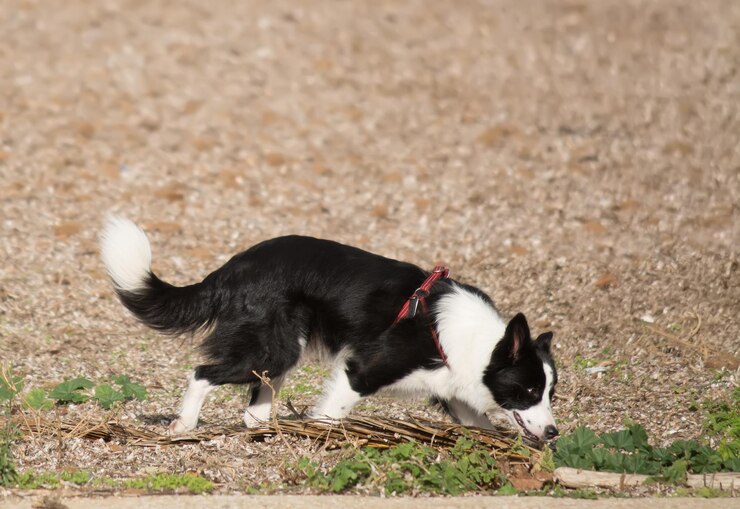Dogs communicate in many ways, and snorting is one of their most common behaviors. You may have noticed your dog snorting during playtime, while excited, or even when they are just resting. But why do dogs snort, and should you be concerned? In this article, we’ll explore the various reasons dogs snort, how you can help your dog stop, and when to seek professional help.
Why Do Dogs Snort?
1. Natural Behavior to Communicate
Dogs snort as a way to communicate with each other and with you. It can happen when they’re excited, curious, or even feeling mischievous. Just like humans express themselves through laughter or sighs, dogs use snorting to show how they feel. If you’ve noticed your dog snorting when they’re playing or interacting with you, it’s likely just a part of their playful nature.
2. Anxiety or Stress
Sometimes, snorting can be a sign of anxiety or stress. When dogs feel uncomfortable or threatened, they may snort to express their distress. This is particularly true for dogs that are not used to certain situations, like car rides, new environments, or loud noises. Dogs may snort when they’re nervous or worried to get attention or relieve their stress.
3. Allergies
Just like humans, dogs can suffer from allergies. If your dog is snorting frequently and appears to be struggling with breathing, allergies may be the cause. Pollen, dust, pet dander, and even certain food ingredients can trigger an allergic reaction, leading to snorting, sneezing, or coughing as the dog tries to clear its nasal passages. If your dog is continuously snorting or sneezing during certain seasons, allergies could be at fault.
4. Medical Issues
Persistent snorting may also point to a medical condition, particularly issues with the respiratory system. Dogs with sinus infections, nasal polyps, or foreign objects lodged in their nose may snort to try and clear their airways. Dogs with collapsed tracheas, particularly small breeds, may also snort frequently. If your dog is showing other signs of illness, such as lethargy, nasal discharge, or a change in appetite, it is time to visit the vet.
Signs That Your Dog’s Snorting Is a Concern
While snorting is often harmless, there are times when it’s a sign of something more serious. Here’s how to tell whether your dog’s snorting requires professional attention:
1. Excessive Snorting
If your dog snorts constantly and it’s interfering with their ability to breathe or enjoy normal activities, it’s time to take action. Snorting that happens frequently and doesn’t resolve quickly could signal a health issue like a nasal infection or respiratory disease.
2. Difficulty Breathing
If snorting is accompanied by labored breathing or your dog seems out of breath, it could be a sign of a serious medical problem. Breathing difficulties often indicate an issue with the trachea, lungs, or nasal passages. Seek immediate veterinary attention if your dog struggles to breathe.
3. Changes in Behavior
If your dog is snorting more than usual and shows other behavioral changes like restlessness, irritability, or lack of interest in food, it may indicate an underlying health condition. Stress and discomfort often manifest as snorting, and if your dog is showing additional symptoms, a vet visit is essential.
Preventing and Treating Excessive Snorting
If your dog’s snorting becomes excessive or bothersome, there are several things you can do to address the behavior.
1. Keep Allergies in Check
If allergies are to blame for the snorting, there are a few things you can do to reduce your dog’s exposure to allergens. Consider switching to a hypoallergenic dog food or using air purifiers in your home to minimize dust and pollen. Additionally, regular baths can help remove allergens from your dog’s coat.
2. Clear Nasal Blockages
Dog Snort can develop nasal blockages, such as mucus or foreign objects in their noses. If your dog’s snorting is caused by a blockage, take them to the vet to have it professionally cleared. If the blockage is minor, your vet may recommend saline sprays or gentle methods at home to help clear your dog’s nasal passages.
3. Provide Regular Exercise
Boredom or lack of exercise can lead to snorting in dogs. Dogs that don’t get enough physical or mental stimulation may begin snorting as a way to release pent-up energy. Provide your dog with regular walks, playtime, and engaging activities. This helps reduce anxiety and provides an outlet for energy, which may reduce snorting.
4. Control Stress and Anxiety
If your dog snort is due to anxiety or stress, work on reducing their stress triggers. Create a calm and predictable environment for your dog. If they get anxious in certain situations, like during car rides or when meeting new people, try using calming products like pheromone diffusers or anxiety wraps. Gradually desensitize your dog to stressful situations to help reduce snorting caused by fear.
5. Address Medical Issues
If snorting is caused by a medical condition, your vet will be able to diagnose and treat the issue accordingly. Your dog may need medication for allergies or treatment for nasal polyps, infections, or other conditions affecting their respiratory system. Always consult a vet if snorting is persistent and seems to be related to an illness.
Home Remedies for Snorting
If your dog’s snorting isn’t caused by a serious medical condition, you can try a few home remedies to alleviate the issue.
1. Diet Changes
Changing your Dog Snort diet can help reduce snorting, especially if food allergies are involved. Switch to a hypoallergenic dog food or choose a diet that avoids common allergens like grains or certain proteins. A clean, balanced diet can help improve your dog’s overall health and reduce allergic reactions that might lead to snorting.
2. Use a Humidifier
If your dog’s snorting is caused by dry air or irritation in the nasal passages, using a humidifier in your home can help. Adding moisture to the air can make it easier for your dog to breathe and reduce snorting caused by dryness in the nasal passages.
3. Offer Fresh Water
Encourage your dog to drink more water. Dehydration can contribute to snorting and other respiratory issues. Make sure your dog has access to clean, fresh water at all times.
Conclusion
Snorting in Dog Snort can be a sign of many things, from excitement and communication to allergies or serious medical issues. While occasional snorting is normal, persistent or excessive snorting may indicate an underlying problem. Pay attention to your dog’s behavior, and if snorting continues or worsens, seek the advice of your veterinarian.
With the right care, diet, and exercise, you can help your dog avoid excessive snorting and keep them happy and healthy. Regular check-ups, a clean environment, and managing stress can all contribute to reducing snorting in dogs. By staying vigilant and proactive, you can ensure that your dog enjoys a long, comfortable life without the troubling sound of constant snorting.

